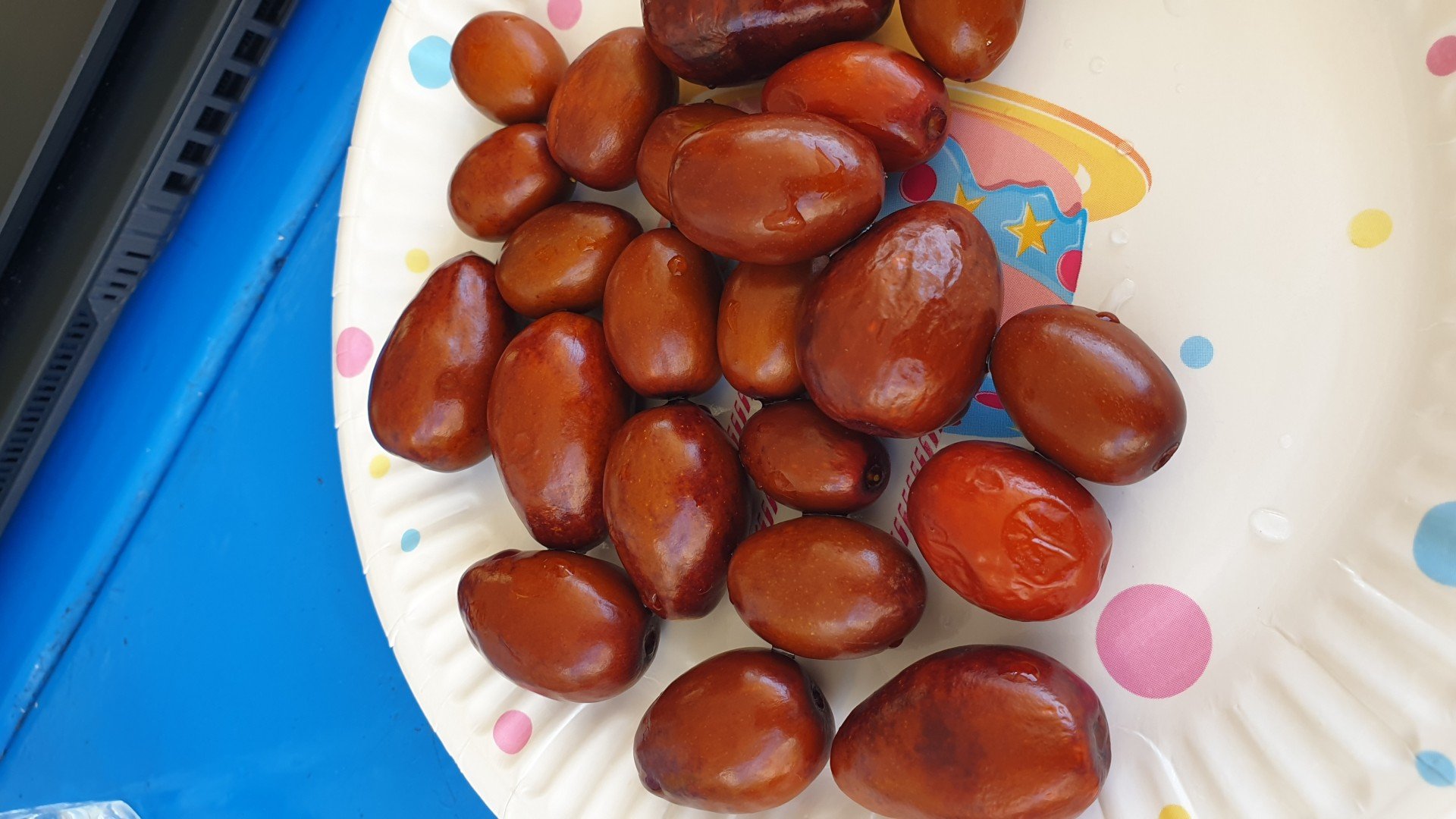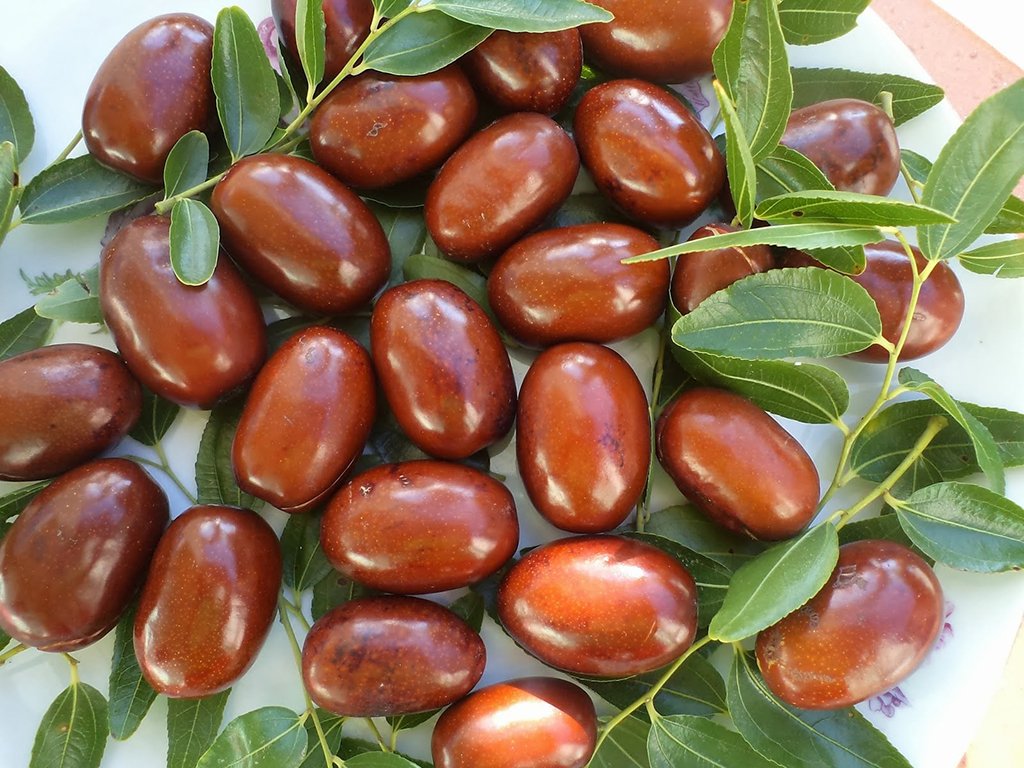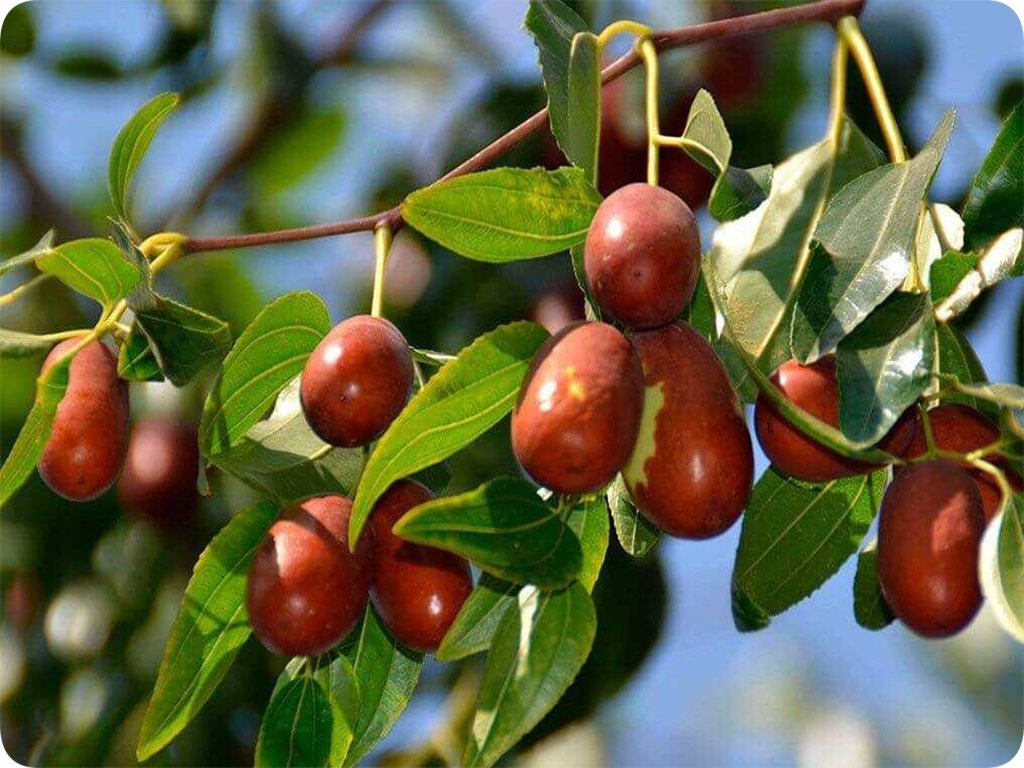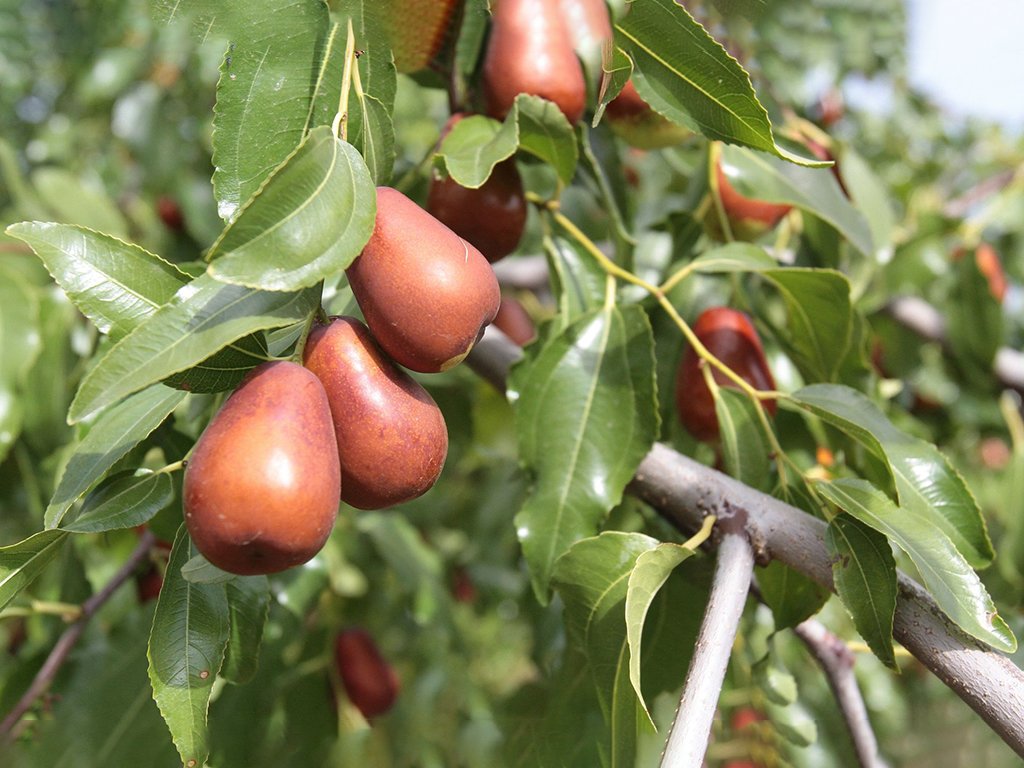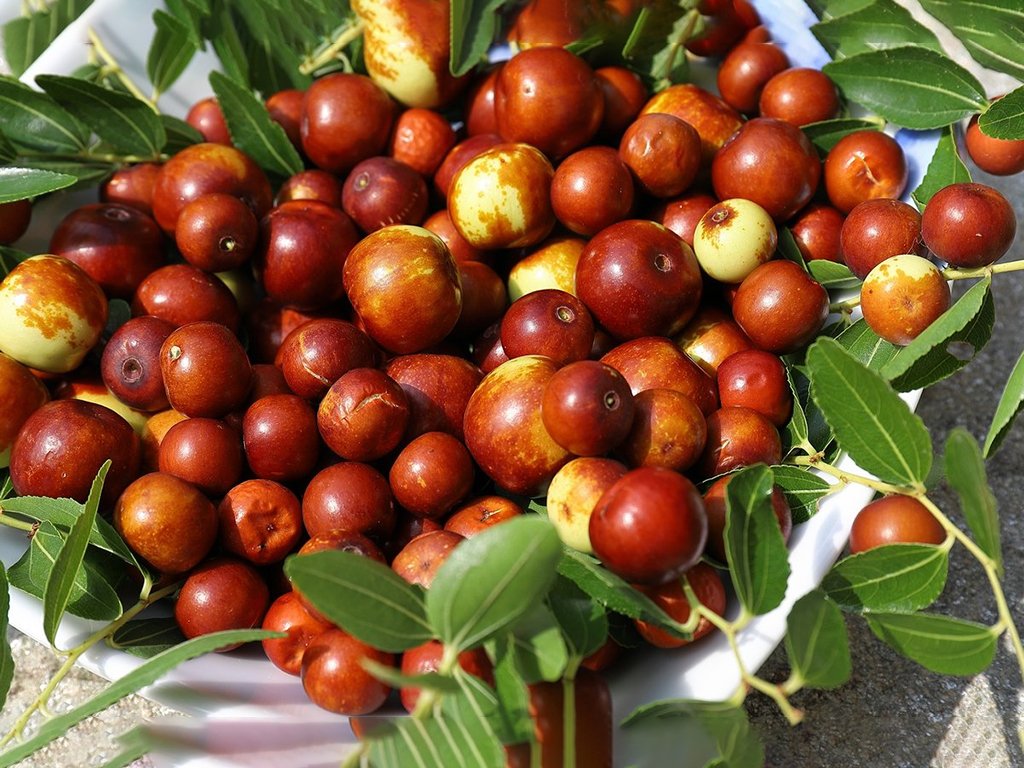Did you know that Unabi, also known as Ziziphus jujuba, Chinese date, or French chest berry, grows in Montenegro? This ancient fruit tree, with its rich history and unique medicinal properties, thrives on sunny slopes in southern Montenegro, particularly in coastal areas.
Unabi is considered a symbol of longevity and health thanks to its nutritional and medicinal benefits. Its fruits are widely used in cuisine, traditional medicine, and even beekeeping!
What Is Unabi?
Unabi is a thorny deciduous shrub or small tree that grows up to 5 to 10 meters tall. Its fruits are small drupes with a smooth skin and sweet, juicy pulp. This plant has been valued for centuries for its medicinal properties and nutritional value.
The fruits change color from pale yellow to reddish-brown as they ripen. Unabi blooms and bears fruit from June to October, and during the flowering period, it emits a delicate honey aroma that attracts bees.
A Valuable Plant for Beekeepers
Unabi is an excellent honey plant! It blooms from June to August, producing a significant amount of nectar. With 1 hectare of unabi plantations, beekeepers can harvest up to 230 kg of honey. This honey is prized for its high sugar content and pleasant aroma, making it highly sought after in beekeeping.
Unabi Fruits: Taste and Benefits
The fruits of unabi can be eaten both fresh and dried. They are rich in:
✅ Vitamins (A, B, C)
✅ Amino acids
✅ Minerals
✅ Antioxidants
In traditional medicine, unabi fruits are used to:
- Strengthen the immune system
- Lower blood pressure
- Calm the nervous system
- Stimulate digestion
In China, where the fruit is particularly popular, unabi is known as “the fruit of longevity”.
Where Does Unabi Grow in Montenegro?
This drought-resistant and frost-resistant plant thrives on sunny, dry slopes in Montenegro, especially in coastal areas. Unabi is undemanding to soil conditions, making it easy to find in wild nature or local gardens.
Surprisingly, Montenegro is becoming one of the few European countries cultivating unabi. Locals use its fruits to make jams, syrups, and compotes, as well as for natural remedies to maintain health.
Medicinal Properties of Unabi
Almost every part of the plant is used in medicine:
🍃 Leaves — Temporarily block the perception of sweet and bitter tastes, making them useful in medicine.
🌰 Seeds — Have a sedative effect, helping to relieve stress and insomnia.
🌿 Bark and roots — Used to treat diarrhea and inflammatory conditions.
🍎 Fruits — Rich in antioxidants, they help with chronic constipation, jaundice in newborns, and reduce the risk of oxidative stress.
A Historical Fun Fact: Unabi Through the Ages
The name Ziziphus jujuba comes from the Greek word ziziphon, which, in turn, originates from the Persian word zizafun, meaning edible fruit. In Europe, unabi was known as “French chest berry” because the fruit was believed to be an effective remedy for coughs and colds.
Why Should You Try Unabi in Montenegro?
- A natural superfood with numerous health benefits
- A traditional fruit with a rich history and cultural significance
- An exotic taste with notes of dates and apples
- A valuable honey plant for beekeepers
If you ever travel through Montenegro, make sure to try this unique fruit growing on its sunny slopes. Unabi is a true gift of nature, long valued as both food and medicine.
Montenegro continues to amaze with its natural treasures, and unabi is one of them!


